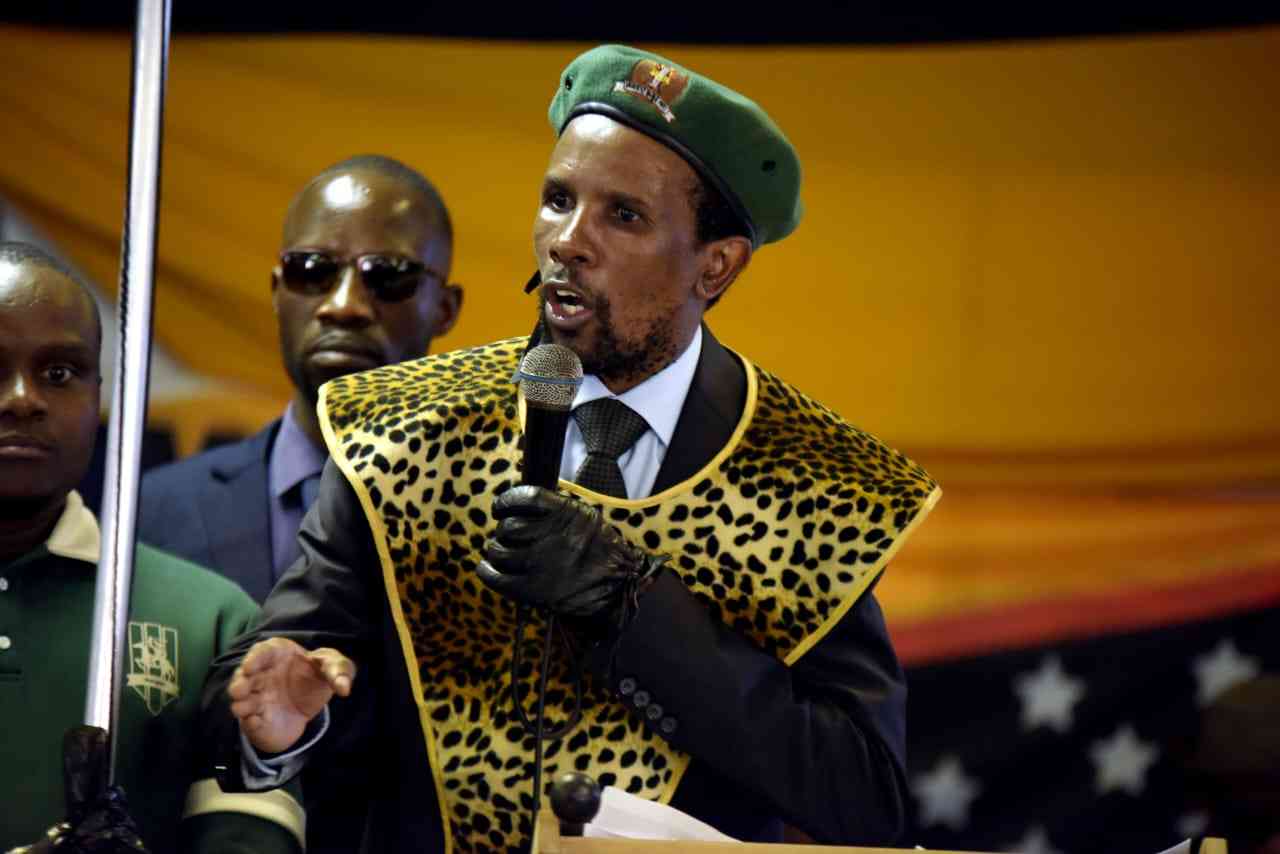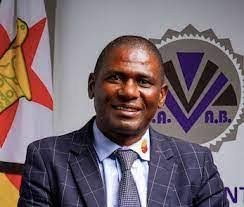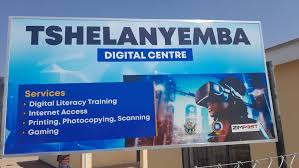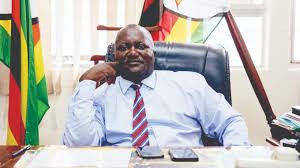
ZIMBABWE's story cannot be fully told without mentioning the Mthwakazi Republic Party (MRP), an organisation that made its name mainly through declaring its intent to cut the country into two. As controversial as it is, leading that push has been Mqondisi Moyo. This week Southern Eye sat down for a chat with Moyo to understand what his movement seeks to achieve.
Below are the excerpts of the interview.
SE: Can you clarify your position in MRP, considering that in 2023, there were reports that you were fired and no longer the president?
MM: I have been and continue to be the president of the MRP, having led the party since its establishment in 2014.
In 2023, rebel members within the party attempted to challenge my leadership through a press conference, making unsubstantiated claims that I had been ousted.
The efforts by rebel members to establish a rival party have been unsuccessful, and I remain the legitimate president of the MRP.
So based on these events, we have concluded that the disturbances within our party and others, such as the Citizens Coalition for Change (CCC), were likely orchestrated by state agents aiming to disrupt the progress we had made in international lobbying, particularly as stakeholders began to respond positively to our petition.
SE: Can we say there are now two MRP factions?
- Police brutality must be condemned
- Police brutality must be condemned
- Zimbabwe’s yellow sea
- Zimbabwe’s yellow sea
Keep Reading
MM: Individuals are free to express their opinions, but we remain focused on our core mission. There is only one genuine MRP, dedicated to achieving self-determination for the people of Mthwakazi.
Our efforts are recognised by the community due to our tangible work on the ground, addressing the daily struggles faced by Mthwakazi people.
We are not concerned with others who may claim to represent us; our priority is advancing our cause.
SE: We have not seen recent activities on the ground like protests from MRP. What could be the problem?
MM: Contrary to appearances, our party remains actively engaged in promoting the rights and interests of the Mthwakazi people.
We are currently focused on international outreach, addressing issues such as self-determination, the Gukurahundi genocide, and other human rights concerns.
These efforts constitute a form of protest against Zimbabwe's subjugation of Mthwakazi and the mishandling of Gukurahundi-related issues.
We will continue to express our grievances through various means, including street protests if necessary.
SE: Why are you currently based in South Africa? Would you consider yourself in political exile?
MM: South Africa provides a more conducive environment for our work compared to Zimbabwe.
SE: How do you justify leading a secessionist movement from outside Zimbabwe?
MM: South Africa provides a more conducive environment for our work compared to Zimbabwe.
SE: Some critics argue that your absence from Zimbabwe undermines your legitimacy as a leader. How do you respond to that?
MM: The legitimacy of our party's leadership is rooted in our constitution and objectives, not in the physical location of our leader.
Moreover, our operations have not been hindered by my presence outside Zimbabwe; we have continued to achieve our goals despite this.
SE: How do you manage that relationship remotely?
MM: I maintain regular, daily communication with our party structures in Mthwakazi, often through personal interactions.
However, the specifics of our communication channels and methods remain confidential.
SE: What exactly does the MRP envision as a “Free Mthwakazi”? Is this purely symbolic, or is full secession still your goal?
MM: The MRP remains steadfast in its pursuit of self-determination, with secession as our ultimate goal. We envision a future where the people of Mthwakazi can live freely, independent from Zimbabwe's oppressive regime.
SE: Some view MRP’s agenda as tribalistic or divisive. How do you respond to those accusations?
MM: Contrary to accusations of divisiveness, our party seeks to restore the historical rights and identity of the Mthwakazi people. Historically, what is now Zimbabwe consisted of two separate countries and nations.
SE: The MRP has been linked to several confrontations and arrests, including members being jailed for allegedly inciting violence. Do you stand by those actions?
MM: Our members, including myself, have faced arrest for advocating for freedom and human rights, but not for engaging in violent activities.
We reject violence as a means to achieve our goals and instead advocate for peaceful, rights-based approaches.
SE: Why do you think South Africa is a safer or more viable base for your activism?
MM: My presence in South Africa is primarily driven by convenience rather than safety concerns.
To effectively pursue our goals, we require engagement with the international community, which South Africa facilitates more readily than Zimbabwe.
While safety is important, it is not the sole reason for my location; I prioritise convenience in advancing our agenda.
SE: Are you engaging with any South African political parties or pan-African movements to support your cause?
MM: One reason for my frequent presence in South Africa is to engage in international lobbying efforts.
I have established relationships with various parties and organisations in South Africa, which have been instrumental in advancing our cause; however, I will not disclose their identities at this time.
SE: Where do you see the MRP in the next five years? Is electoral participation still part of your strategy?
A: The MRP aims to establish a strong global presence, with robust structures in place to engage in peaceful confrontation with oppressive forces.
Our name will become widely recognised throughout Mthwakazi.
We have shifted our focus away from electoral participation, instead prioritising the mobilization of Mthwakazi society and international support for our self-determination goals.
SE: If Zanu PF were to invite you to a national dialogue, would you accept?
MM: For us, the term "national" refers specifically to the borders of Mthwakazi, not extending to Mashonaland or other regions.
Consequently, we will not engage in activities that are "national" from a Zimbabwean perspective, as we have no interests or stake in Mashonaland.
We will only consider invitations that directly relate to Mthwakazi's interests.
SE: Any positive response from your international lobbying engagements going so far?
MM: We have successfully engaged with various international organizations and governments, including the United Nations, European Union, African Union, Sadc, UK government, and international courts.
The responses have been largely positive, with many expressing support for our cause and indicating a willingness to help advance our goals in the near future.
SE: We gather that you petitioned South Africa President Cyril Ramaphosa on July 11, 2025, alongside Health minister Pakishe Aaron Motsoaledi and Home Affairs minister Leon Amos Schreiber on the treatment of Zimbabwean nationals in South Africa who are denied access to healthcare, and who are being arrested for lack of documentation. What has been the response from the SA government?
MM: On August 1, 2025 the office of the Presidency of South Africa responded to me and gave an assurance that I raised very pertinent issues and the memorandum is receiving attention and will be forwarded to the relevant authorities I identified to deal with the issues raised.
The Presidency of SA, the Ministry of Health and the Ministry of Home Affairs had on the 11th of July 2025 stamped and signed for the petitions delivered to them.
The petition had been copied to more than 39 relevant stakeholders who included all political parties in South Africa particularly those in Parliament, different Civic organisations in SA including Dudula, March on March, Sanco, progressive forces of South Africa , neighbouring presidents, Sadc, African Union, United Nations and other relevant international stakeholders.
SE: On July 4, 2025 you handed a petition to the UN House in Pretoria. What did you petition for?
MM: We petitioned the UN office in Pretoria to deliver on our behalf the same document to the United Nations headquarters in New York on our demands on the self-determination agenda and the Gukurahundi genocide issue. The UN office officials received us warmly, signed our petition, and assured us that they would take our concerns to the UN headquarters in New York.









